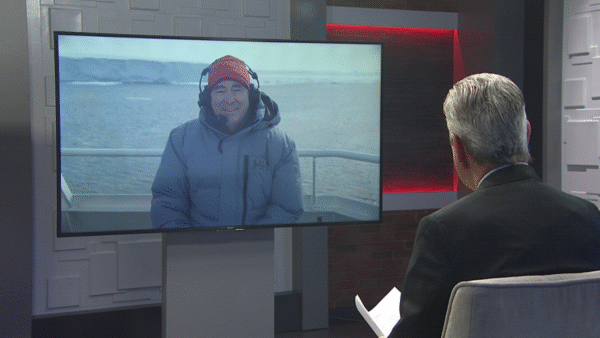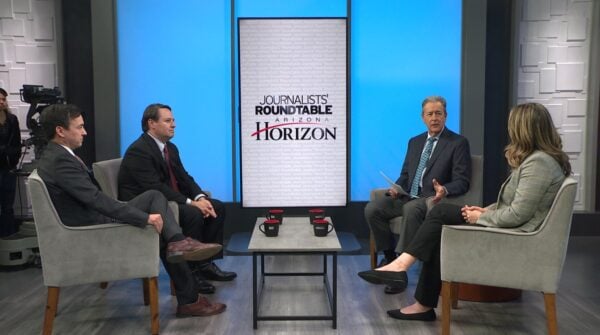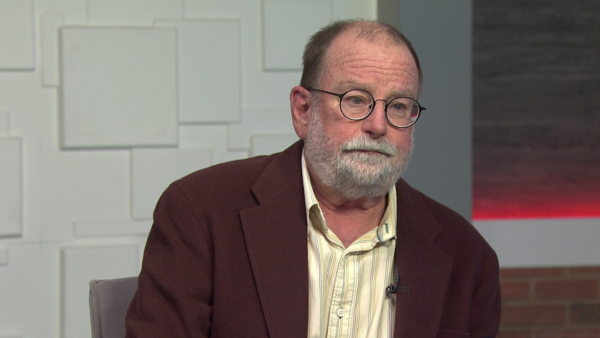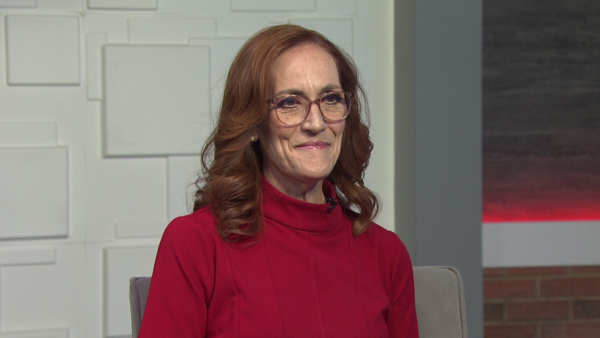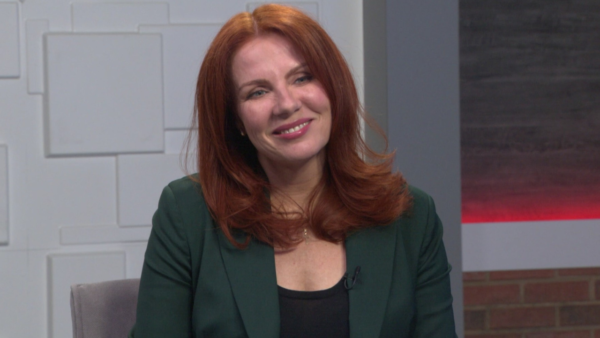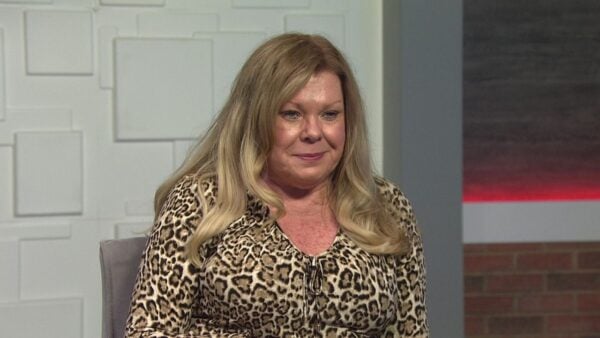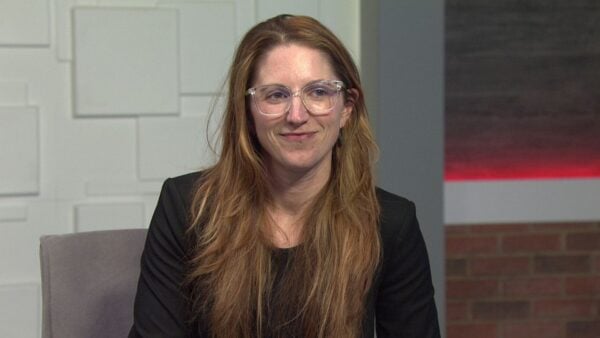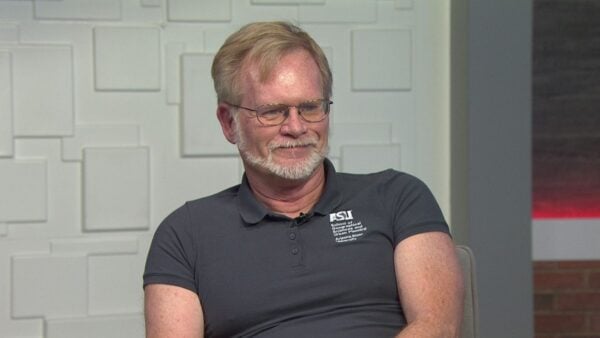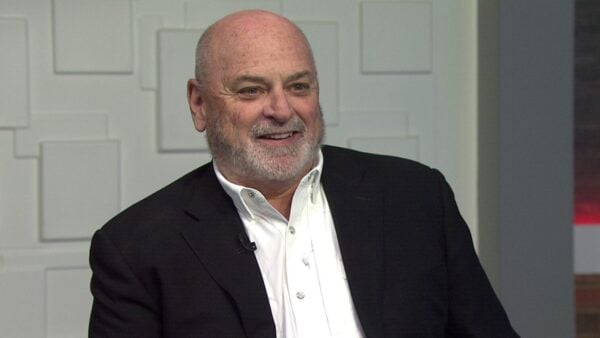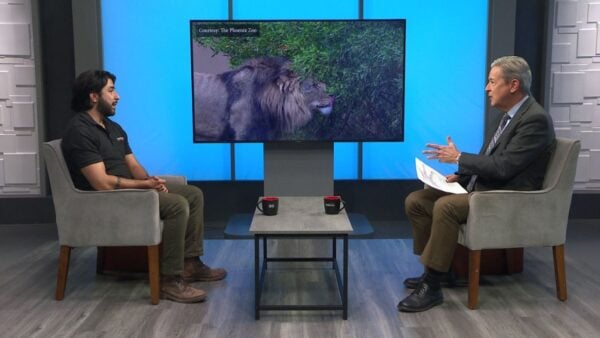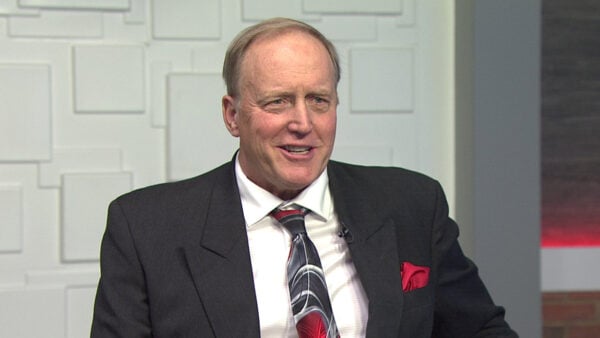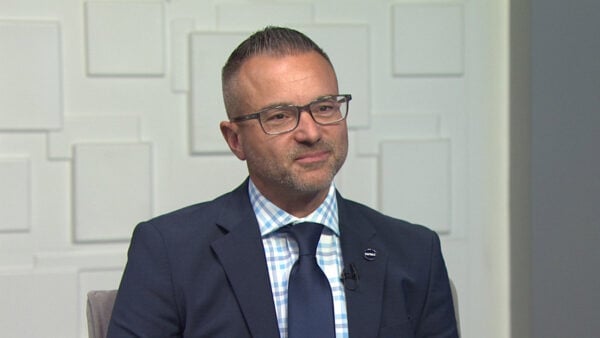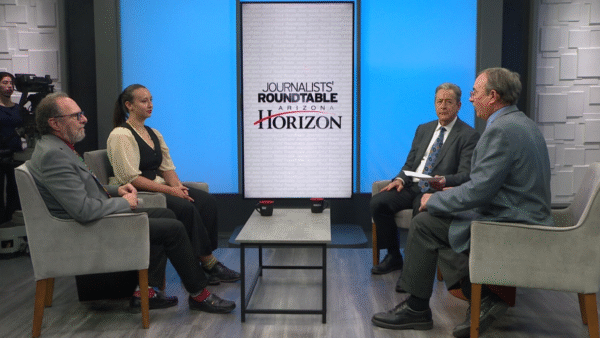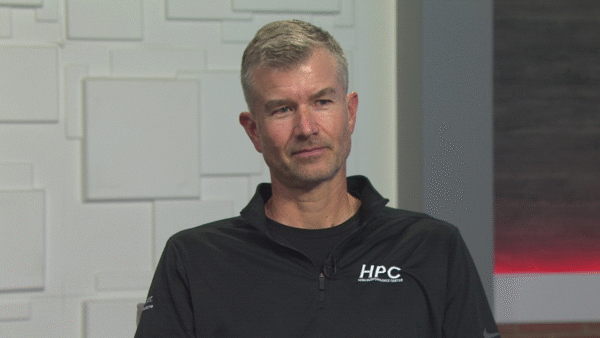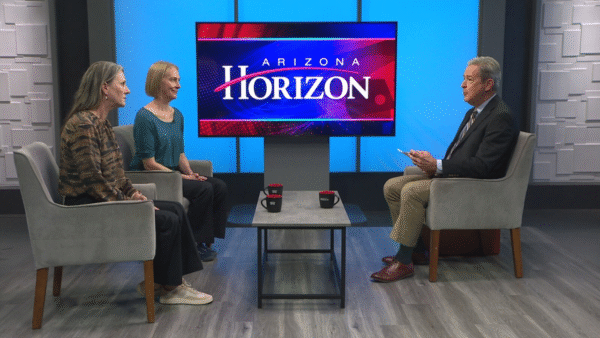Jane Elliott, an anti-discrimination educator, has spent her entire life teaching students and adults about the ignorance of racism and how to fight against it.
Discrimination exists because people are ignorant, Elliot says, and classifies racism as a man-made myth invented centuries ago as a way to decide who would rule, and who would be enslaved.
Elliott is known for her Blue Eyes, Brown Eyes exercise that began a day after the assassination of Martin Luther King, Jr. She taught her third graders about racial discrimination by dividing the room into two groups based on if they had blue or brown eyes. Elliott made the blue-eyed group superior, giving them extra privileges such as an extended recess. After a week she made the brown-eyed students superior. Following the exercise, the students wrote down what they experienced.
“White people have the power to keep it going, and they don’t realize that white people have never been free in this country,” Elliott says. “As long as we are shackled by the bonds of racism we will not be free.”
Elliott continues to lecture minors and has also started to offer classes to adults. After nearly 50 years of focusing on diversity education, she says she saw progress until about a year and a half ago when the attitude toward race took a dive. Elliott says she began to receive more hate mail than ever before as well as “filthy phone calls.” Elliott believes it to be the result of the country’s current leadership and the attitude they have that says “it’s all right to be a bigot.”
Elliott was a guest on Arizona Horizon last fall to discuss her speech on the myth of racial superiority for ASU’s Project Humanities.
Ted Simons: Such an interesting conversation. We could go on with this forever. Thank you so much for joining us and helping us make sense of rhetoric and race in this current time. Thank you for joining us. Up next on this Martin Luther King Day Special, we'll hear from Jane Elliott, an educator who’s devoted her life to fighting racism. Jane Elliott is an anti-racism educator famous since the 1960's For her "Brown Eyes, Blue Eyes" exercise that helps make people become more aware of what it feels like to be the victim of racial discrimination. It was a classroom exercise she conducted after the assassination of Martin Luther King Jr. We spoke with Jane Elliot about her work. Good to have you here. Thanks for joining us.
Jane Elliot: Well we'll see won’t we?
Ted Simons: Yes we will, we’ll see if you’re having a good time too.
Jane Elliot: We’ll see if you have a good time after I leave.
Ted Simons: Let's define terms here. What is discrimination?
Jane Elliot: Treating people positively or negatively on the basis of physical characteristics of which they have absolutely no control.
Ted Simons: You came prepared for that question. You have been dealing with this for a long time.
Jane Elliot: Yes since 1968 full-time. Since the day after Martin Luther king Jr. was killed.
Ted Simons: We’re going to get to that in a second. Discrimination, racism. Why does it exist?
Jane Elliot: Why does it exist? Because we are ignorant. Because we actually believe that having more or less melanin in the skin makes you more valuable or intelligent. It's a lie, a myth created about 500 years ago. Before that there were lots of color groups. You didn't treat people positively or negatively based on the color of their skin. But about 500 years ago, after the Spanish Inquisition, they needed a way to identify the people they were going to kill or imprison or make slaves, so they used skin color. We invented the myth of racism. There is only one race on the face of this earth. You and I are members of the same race and so is everyone in this room.
Ted Simons: Why can't we dis-invent racism?
Jane Elliot: Because white people have the power to keep it going. And they don’t realize that white people have never been free in this country. As long as we are shackled by the bonds of racism, we will not be free. White males will never be able to live up to the image of what they are capable of doing, and we'll never allow black males to live up to be what they could be. We have forced them to live down to our expectations because it's all about expectations.
Ted Simons: The assassination of Martin Luther King Day after you do an exercise, blue eyes, brown eyes. Talk to us about that.
Jane Elliot: I separated students by the color of their eyes because that's one of the ways they decided who went into the gas chamber in the Holocaust, I knew that. And when Martin Luther King was killed, he had been one of our heroes of the month including, unfortunately, George Washington who owned slaves, Abraham Lincoln that was our first black president. We don’t teach that in schools. You’re looking surprised because you didn’t know that.
Ted Simons: I did not.
Jane Elliot: He was part black, part white and part Cherokee Indian. He was a millengian. We do not teach that in schools because it would wreck our social studies program would be blown out of the water. Those were two of our heroes during that week, during that month. It's ridiculous to teach those two men as heroes.
Ted Simons: Back to Brown Eyes, Blue Eyes here. Separated according eye color to do what. What did you think would happen and did it happen the way you envisioned?
Jane Elliot: Not at all. The reason I did the eye color is because we were studying an Indian unit at the time. Our lesson plan for the next day was to learn the Sioux Indian prayer that says, “oh great spirit keep me from judging a man until I have walked a mile in his moccasins.” I was watching Walter Cronkite the night after Martin Luther King Jr. was killed. He said to three black leaders of the black community. I can't talk about this without getting sick to my stomach. I remember what it felt like that night. Martin Luther King represented hope for me. We killed hope that night. We killed hope for millions and millions of people. I was furious. And there sat Walter Cronkite asking three leaders of the black community, when our leader was killed his widow held us together, who is going to keep your people in line? Every part of that sentence was offensive and disgusting. So I changed the channel. There is Dan Rathers saying to three leaders of the black community, don't you Negroes think you should feel sympathy for us white people during this because we can't feel the anger at this killing that you Negroes can. I was furious. I couldn't understand why every white person in the United States didn’t feel anger at that killing. Because that killing proved once again that we solve our problems by killing people. We are still doing it.
Ted Simons: And those elementary school students, when they were separated, and you said, brown eyes or blue eyes is racially or just inherently superior or inferior, they took it to heart.
Jane Elliot: Well they came into the classroom the next day and they said they shot that King. Why did they shoot that King? I said we’re going to talk about that. So after we discussed it I could tell they weren’t internalizing it and I finally said do you kids have any idea how it would be to feel treated badly based on the color of your eyes? No, would you like to know? Yeah we already did enough spelling and handwriting keep her talking and we don’t have to learn anything all day. We all did it. Today we judge people on the colors of the eyes. Since I’m blue-eyed and most of the students in here are blue-eyed, they'll be on the bottom the first day. Because I knew that the power had to be with the people considered inferior. And within five minutes those kids became what I told them they were. They immediately began to live down to my expectations of them and up to my expectations of them. Little brown-eyed Debbie sitting in the front row immediately said, how come you are teacher if you have them blue eyes. And what could I say?
Ted Simons: I was going to say, that’s a stopper right there. But did you expect that?
Jane Elliot: Heavens no. I'm a white woman. I don't know anything about racism. I don't have to know anything about racism. A black woman would have expected that and they would have been fired immediately.
Ted Simons: Were you fired immediately?
Jane Elliot: No, but every time there was an opening on the school board someone would bring it up to see if they could get me then.
Ted Simons: And now you do these exercises with adults. You have been doing this for a lot of years.
Jane Elliot: 50 years in April.
Ted Simons: Is it getting any better?
Jane Elliot: It was.
Ted Simons: What do you mean it was?
Jane Elliot: Well, in the last year and a half, I have gotten more hate mail than I have gotten in years. I have gotten calls, filthy calls. I haven't had those for 15 years. We now have leadership that says, it's all right to be a bigot. The more bigoted you are the better off you will be in this country. When you are building a wall to keep other Americans out of America, there is something very wrong with that, and that teaches the wrong lesson to children.
Ted Simons: Did you know before, obviously you know now. This is 50 years plus. You have been doing this thing for a while now. Before you ever started, were you this passionate about anything? You are a passionate person about this.
Jane Elliot: Some people call me passionate. Some people call me crazy. You can choose.
Ted Simons: We’ll go with passionate.
Jane Elliot: Let’s go with passionate. My father said never put a stone in another man's path. My father said you can't judge a book by its cover. My father said a fair thing is a pretty thing and a right wrongs no man. If those aren't words to live by, I don't know what are.
Ted Simons: Back to the lesson, those third graders, do you think you have changed them or an exercise that proved the obvious?
Jane Elliot: No, it changed them. It changed them forever. They'll tell you it changed them forever. The third group I did it with was filmed by another network. Last spring, two of those boys were middle aged men, were called by the BBC, taken to Los Angeles to interview about the exercise. They were doing a documentary on the science of the brain. They finished the interviews and said your teacher changed your brains in one day in a positive way. If I can change a white child's brain in one day with a positive exercise, what are we doing to black children with the skin color exercise that we use every day in this country? People say to me, well-meaning liberal white people say to me, how could you do that to those poor little white children? How could you treat them that badly? And I say, wait a minute. It was one person against those children. They knew it was going to last for one day. I wonder when you will apply that sentiment about white children, to black children all day in this country. And to children who are immigrants here from Mexico and to children on Indian reservations because we stole their land, we killed their fathers and mothers and grandparents and stole their lands and you are complaining about what happens to 16 little white nine-year-olds who are going to go out of my classroom and that are going to be changed in a positive way, but still be able to be white.
Ted Simons: Jane Elliot, "Blue Eyes, Brown Eyes.” We can find see those on YouTube? Can we find that on the internet? Well if you’re interested in that, check it out. Jane Elliot, it’s a pleasure to meet you. Thank you for joining us.
Jane Elliot: Thank you for having me here.
Ted Simons: You bet.
Jane Elliott: Educator, Anti-discrimination


